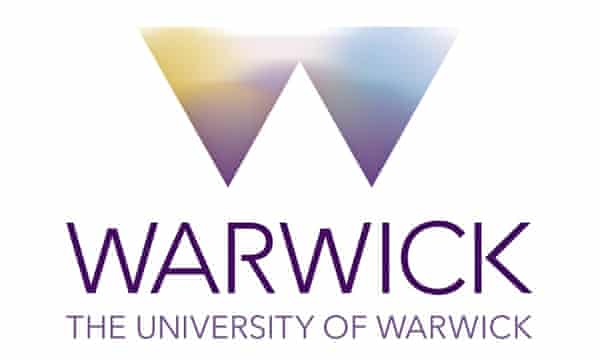University of Warwick: Over €5 million funding for University of Warwick projects tackling sustainability and fundamental question of our universe
Three new research projects at the University of Warwick that will investigate new avenues for a sustainable future as well as a fundamental question of our universe’s past have been awarded a total of more than €5 million in European Research Council Starting Grants.
Following the first call for proposals under the EU’s new R&I programme, Horizon Europe, €619 million will be invested in excellent projects dreamed up by 397 scientists and scholars. Grants worth on average €1.5 million will help ambitious younger researchers launch their own projects, form their teams and pursue their best ideas. The selected proposals cover all disciplines of research, from the medical applications of artificial intelligence, to the science of controlling matter by using light, to designing a legal regime for fair influencer marketing.
The SHINE project (Shining Light on Metal Halide Perovskite Stability with Nanoscale Optical Microscopy and Ultrafast Spectroscopy), led by Dr Rebecca Milot of the University of Warwick’s Department of Physics, has received €2,473,363 and will investigate one of the most promising new materials for solar energy conversion, metal halide perovskites. The SHINE project will pioneer the combined use of THz and photoluminescence (PL) scattering near-field microscopy (SNOM) to map static and dynamic optoelectronic properties at the nanoscale.
Dr Rebecca Milot of the Department of Physics.Dr Rebecca Milot said: “Developing new and more efficient sources of clean, renewable energy is vital to mitigating the detrimental effects of climate change. I am very pleased to receive this funding because it will enable us to look at fundamental properties of some of these materials in a much more targeted and detailed manner to hopefully accelerate the process of the development of better materials.”
Funding of €1,494,483 has been awarded to the project ‘Deep learning enabled simulation of plasmonic photocatalysis’ (DeepSpark) led by Dr. Reinhard J. Maurer from the Department of Chemistry, which will focus on studying an emerging type of chemical catalysis called plasmonic photocatalysis that is promoted by light. New simulation methodology will be created by training deep machine learning algorithms to understand and predict the quantum interaction of light, molecules, and metal catalysts and contribute to the development of new processes and materials for sustainable and carbon-neutral fuel and fertilizer production.
Dr Reinhard J. Maurer from the Department of Chemistry.Dr Reinhard Maurer said: “Our goal is to create machine learning methods that can understand the rules of quantum mechanics to rapidly predict the possible outcomes of chemical reactions. This approach will have potential applications far beyond plasmonic photocatalysis. Developing this approach will take time and requires building an interdisciplinary team, which is made possible thanks to the flexible and long-term funding provided by the European Research Council.”
€1,490,202 has been awarded to the KstarKstar project, led by Dr Matt Kenzie of the Department of Physics, which aims to enhance our understanding of the physics underpinning the matter-antimatter asymmetry of the universe. If matter and antimatter were created in equal amounts there would be no galaxies, stars, planets or human beings. Answering this question is fundamental in explaining how our universe arrived at its present state. The KstarKstar project will use data collected at CERN’s Large Hadron Collider beauty experiment (LHCb) with a unique pair of beauty quark decays which offer a completely new and unexplored perspective to this problem.
Dr Matt Kenzie of the Department of Physics.Dr Matt Kenzie said: “I’m delighted the ERC have decided to fund this project and can’t wait to get started with this new program of research. This funding will allow us to hire a specialised and dedicated team to analyse a very rare and unique pair of decays, not accessible anywhere but at the LHC, which will help us to answer the most fundamental questions about the universe and to potentially find new types of elementary particles and interactions. With the Large Hadron Collider expected to start taking data again later this year, the timing of the funding could not be better.”
President of the European Research Council Professor Maria Leptin said: “Letting young talent thrive in Europe and go after their most innovative ideas – this is the best investment in our future, not least with the ever-growing competition globally. We must trust the young and their insights into what areas will be important tomorrow. So, I am thrilled to see these new ERC Starting Grant winners ready to cut new ground and set up their own teams. Some of them will be coming back from overseas, thanks to the ERC grants, to do science in Europe. We must continue to make sure Europe remains a scientific powerhouse.”

